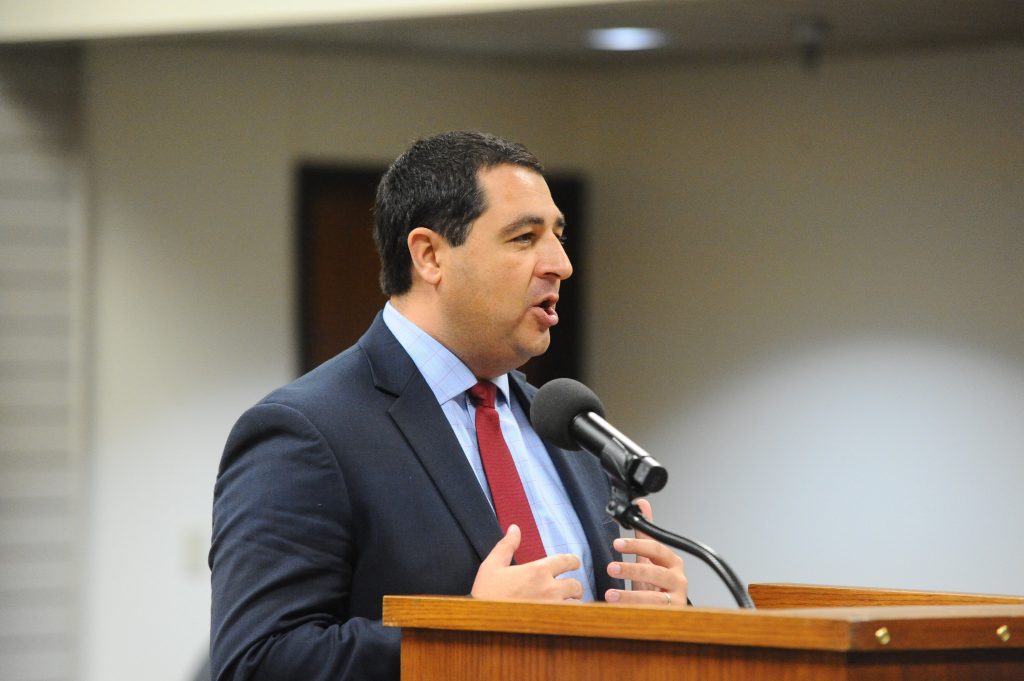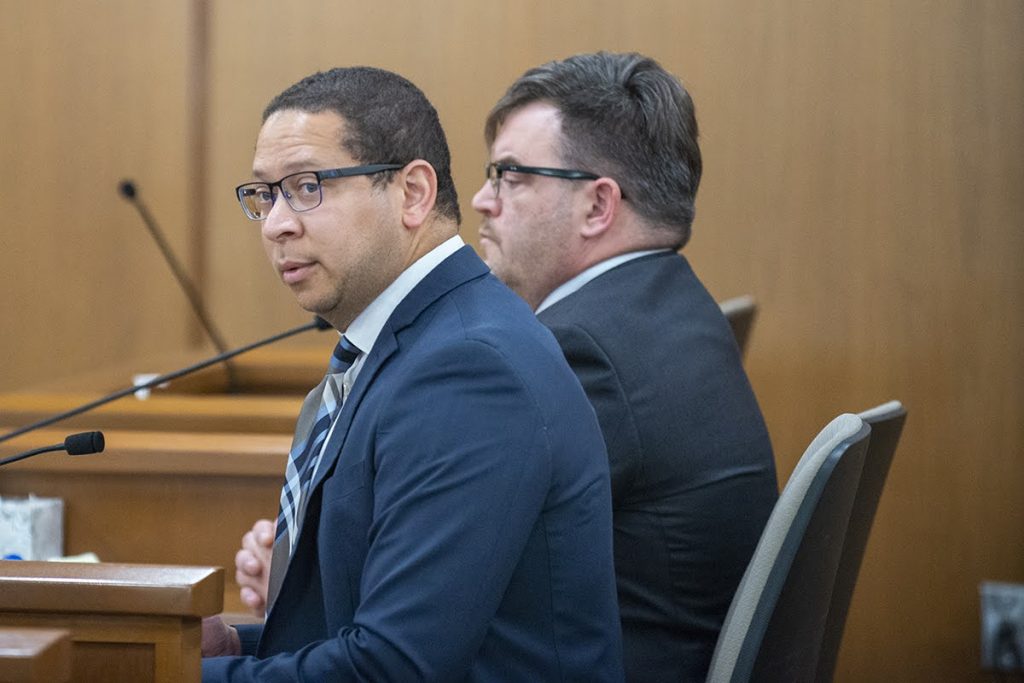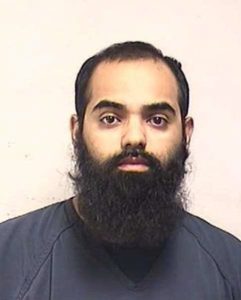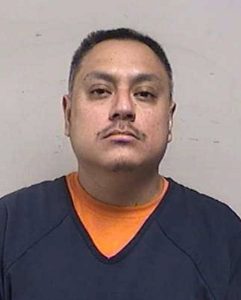
(File Photo by Kevin Mathewson, Kenosha County Eye)
Milwaukee County, Wis. – A Milwaukee County resident has filed a lawsuit against Wisconsin Attorney General Josh Kaul, alleging that the Wisconsin Department of Justice (DOJ) unlawfully denied his concealed carry license renewal. The plaintiff, Kenneth Karwacki, contends that Wisconsin’s firearms possession law is unconstitutional as applied to him.

(File Photo by Kevin Mathewson, Kenosha County Eye)
Karwacki, represented by attorney William Sulton of Sulton Law, argues that Wisconsin’s statute prohibiting firearm possession for those convicted of a crime elsewhere that would be a felony in Wisconsin violates the Second Amendment. William Sulton, who is also the president of the Wisconsin American Civil Liberties Union, has filed the lawsuit in federal court, seeking declaratory and injunctive relief, claiming that Karwacki’s rights are being infringed upon due to a prior misdemeanor conviction.
Background of the Case
The lawsuit states that Karwacki was convicted in a special court martial of unlawfully delivering peyote, a misdemeanor offense, and received a bad conduct discharge. However, Wisconsin DOJ denied his concealed carry license application on November 21, 2024, citing Wisconsin Statute 941.29(1m)(b), which prohibits individuals convicted of an offense elsewhere—if it would be considered a felony in Wisconsin—from possessing firearms.
Karwacki argues that this application of the statute is unconstitutional, as there is no historical tradition of barring firearm possession based on misdemeanor convictions. The lawsuit asserts that Wisconsin cannot arbitrarily transform a non-felony conviction from another jurisdiction into a Wisconsin felony for the purposes of denying firearm rights.
Wisconsin DOJ’s Response
The Wisconsin DOJ has moved to dismiss the lawsuit, maintaining that Karwacki’s challenge lacks merit. The DOJ argues that Wisconsin law is consistent with the nation’s historical firearm regulations and that Karwacki’s drug-related conviction justifies his disqualification from possessing a firearm. The DOJ also asserts that the statute is constitutionally sound, as it aligns with laws that prohibit firearm possession by those deemed untrustworthy under the rule of law.
Legal Arguments
Karwacki’s lawsuit hinges on the Second Amendment, asserting that Wisconsin’s denial is a violation of his fundamental right to keep and bear arms. He claims that the statute in question is both facially unconstitutional and unconstitutional as applied to his case.
In contrast, the DOJ defends its position by citing legal precedent upholding laws restricting firearm possession for individuals with criminal histories. It argues that states have the authority to determine firearm eligibility and that the federal courts have consistently upheld restrictions on gun ownership for individuals convicted of drug-related offenses.
Potential Implications
This case could have significant implications for Wisconsin’s gun laws and may set a precedent regarding how out-of-state convictions are treated in determining firearm possession eligibility. If successful, Karwacki’s lawsuit could challenge the broader interpretation of state firearm restrictions and influence gun rights debates nationwide.
The court has yet to rule on the DOJ’s motion to dismiss, and the case will likely undergo further legal scrutiny in the coming months. Meanwhile, gun rights advocates and legal experts are closely watching how the case unfolds, as it could potentially impact the legal landscape of concealed carry regulations in Wisconsin and beyond.

Reaction from Gun Rights Advocates
Nik Clark, the president of Wisconsin Carry, strongly criticized Attorney General Josh Kaul’s approach to gun rights.
“Prior to being elected Attorney General in Wisconsin, Josh Kaul was a liberal Washington DC insider and an attorney with the infamous DC Perkins Coie law firm. Wisconsin Carry, Inc. expected he would use his bureaucratic power to infringe on gun rights in Wisconsin to the greatest extent possible when he was elected, and we’ve been proven right. In 2022, the Wisconsin Supreme Court unanimously ruled against AG Kaul in the Wisconsin Carry-funded case ‘Doubek v. Kaul.’ In that case, it was determined Josh Kaul unlawfully revoked or denied concealed carry licenses from countless numbers of Wisconsin residents. Wisconsin Carry currently has a second case we funded against AG Kaul in front of the Wisconsin Supreme Court. Scot Van Oudenhoven v. Wisconsin Dept of Justice is a case where Josh Kaul’s DOJ denied a firearm purchase to an individual, citing a federal statute, which we believe expressly does not apply to Mr. Van Oudenhoven.”
Clark also suggested that the outcome of Karwacki’s case could have broader political ramifications:
“We are not surprised there is another case being litigated which challenges Josh Kaul’s anti-gun-rights practices. It’s possible this case as well may find its way to the Wisconsin Supreme Court, which highlights the critical importance of the upcoming spring Supreme Court election. The court majority shifted liberal in the previous election. Brad Schimel, former demonstrably pro-gun Wisconsin Attorney General, is seeking a seat on the state’s highest court. His opponent is an anti-gun liberal Dane County Circuit Court Judge, Susan Crawford. Whomever wins this race in April will replace retiring liberal Justice Ann Walsh Bradley. If Schimel wins, it will tip the majority back in a more freedom-minded, pro-2nd Amendment direction, which could come into play in this and other cases.”
Clark emphasized that Wisconsin Carry supports Second Amendment rights while also advocating for a balanced approach to public safety:
“Wisconsin Carry believes the right to self-defense is a basic human right. We believe dangerous convicted felons belong behind bars, but people who have served their sentences, demonstrated reform, and a respect for the law and their fellow citizens should not be denied the ability to protect themselves and their families using a firearm. It’s a shame that in Wisconsin, soft-on-crime courts ‘use the streets as a jail’ for truly dangerous, violent convicted felons who are statistically shown to reoffend by unlawfully carrying and using firearms and other weapons to terrorize the law-abiding citizens with impunity. At the same time, the Wisconsin DOJ looks for any technicality (legal or non-legal) to deny an otherwise law-abiding person, who poses no threat to others, the state and federally constitutionally guaranteed right to keep and bear arms.”



































22 Responses
Someone help me out.
I think I read that this was a federal case.
Then I read this Nik Clark guy say the his case will be decided by the Wisconsin Supreme Court. If it is a federal case, why would the Wisconsin Supreme Court decide the case?
Does Clark know this—he should—or was this just some way of promoting Schimel’s campaign for the Wisconsin Supreme Court?
You are right, if this is a federal case the Wisconsin Supreme Court will have no jurisdiction over it. I don’t know if it is a federal case or not. Kevin reported it as one.
“Unrelated Person” heh.
We’re going to need a lot of popcorn. Kaul will always try and find a way to change the law without bothering to involve the legislature, and that’s what they do if they get on the Supreme Court, also.
People convicted of misdemeanor domestic violence are ineligible for concealed carry licenses in Wisconsin.
Yes, and if the rules are bent in this case it will be an example and the rules will be bent for others and the snowball continues. Im a conceal carry supporter but I also dont think guns should end up in the wrong hands.
I don’t think we have enough information here to know if this guy is “wrong hands”. I know the law is the wrong thing to have in Josh Kaul’s hands, what was him being a far left activist instead of a level-headed legal advocate/protector..
Moral of the story is: don’t deal drugs.
Well Josh Kaul is a communist so……….
His candidacy was sponsored by George Soros.
Josh’s mother, Peg Lautenschlager trained her son to be an outstanding Marxist-Democrat.
A court martial is related to military laws which are seperate and differ from criminal laws. Disobeying a superior officer is a big thing in the military but not a criminal law.
If this guy has a dishonorable discharge then I would say no to a CCW, but others I would not have an issue with. Unless he was mentally ill.
Everything is becoming so politicized these days and it sucks.
As I read it, the guy is suing over unlawful denial of CVL renewal, indicating at some point he had been issued a CCL. So, either he originally got his license before Kaul became AG, (clearing the background check) and when it came up for renewal, it was denied, or he got it after Kaul became AG, and his application was approved initially (which again means he cleared the background check) but still got denied. Either way, a misdemeanor conviction (other than a DV charge) is not a cause for denial, even a drug conviction.
Was issued ccw and allowed to purchase firearms in 2019. Fast forward to renewal in 2024 and it was denied.
Josh Kaul is merely following the laws on the books. Karwacki is suing to get a Wisconsin law overturned that prohibits a person from being granted a CC license if they are convicted of a crime elsewhere that would be a felony in Wisconsin. He was convicted of delivery of peyote, a misdemeanor in the eyes of the military. Delivery of any illegal drug in Wisconsin is a felony. This has nothing to do with AG Kaul personally. He is only doing his job. All this outrage and hysteria helps nothing.
The general rule of law is that statutes enjoy the presumption of constitutionality. The state will need to make the case that there is a rational basis for the classification.
Karwacki is challenging the presumption of constitutionality of the CC law. It is his burden to prove that it is unconstitutional.
The burden of proof is always on the state.
From what I understand, he was given a bad conduct discharge. When you are in the military which surprisingly, isn’t mentioned here, but the wording of bad conduct discharge seems to indicate that was the case) and you do certain things, it’s a whole new ball game and a different set of rules that follow you everywhere, it doesn’t matter which “side” you’re on.
“A bad conduct discharge (BCD) is not technically a felony, but it’s treated similarly to a felony conviction. A BCD is a punitive discharge that can be given to enlisted service members who commit serious offenses.” The thing is, the military has the ability to charge the servicemember under the UCMJ, or they can punt it to the civilian courts. If he was found guilty in a civilian court, he would have a felony on his record. Under these circumstances, he received a bad conduct discharged for selling drugs, therefore he should be not entitled to a CCW permit.
For once the ACLU might be in the right side of things.